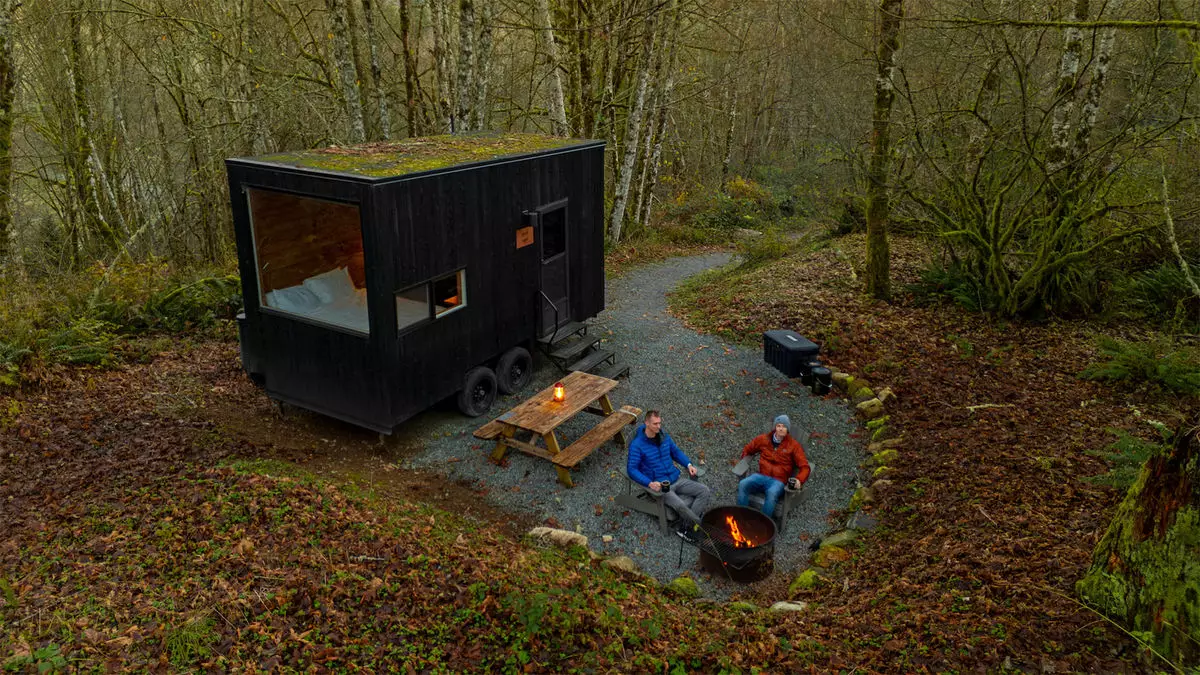The hospitality industry is experiencing a notable paradigm shift as major players, including Marriott International, pivot towards outdoor accommodation. With the acquisition of Postcard Cabins and a strategic alliance with Trailborn, Marriott is clearly setting its sights on a burgeoning segment of the travel market that emphasizes immersion in nature. This move aligns with a broader trend as travelers increasingly seek experiences that juxtapose the comforts of luxury with the ruggedness of the great outdoors. It signals not just a change in marketing strategy but a fundamental evolution in how accommodations can meet the changing desires of modern adventurers.
Postcard Cabins, which specializes in tiny cabin lodging near metropolitan areas, embodies the allure of simplicity and connection to nature that has captured the attention of today’s travelers. Its locations, from the scenic Catskills to the serene landscapes of Shenandoah, offer easy access to nature without sacrificing comfort. By incorporating brands like Postcard Cabins into its portfolio, Marriott aims to cater to both urban dwellers yearning for a brief escape and outdoor enthusiasts in search of unique experiences.
Marriott’s ventures into the outdoor accommodation market demonstrate an acute awareness of evolving consumer preferences. The hospitality landscape no longer caters solely to those seeking opulent stays; travelers increasingly wish for experiences that forge a connection with nature. The travel segment labeled “soft adventure,” which encompasses milder experiences such as culinary tours combined with light hiking, is gaining traction. Companies like the Adventure Travel Trade Association are highlighting this shift through data that indicates a rapid rise in these more accessible travel offerings.
Shannon Stowell, the CEO of the Adventure Travel Trade Association, has emphasized that Marriott’s acquisition represents a significant movement in the industry. This trend denotes a departure from traditionally defined adventure travel, embracing a more diversified array of experiences that cater to varied interests and comfort levels. This shift necessitates a re-evaluation of what classified as an adventure, with culinary tastings now seamlessly integrated into outdoor experiences.
Marriott is not alone in this race toward outdoor luxury. Competitors like Hyatt and Hilton have already aligned themselves with outdoor-focused brands, integrating unique accommodations into their existing offerings. Hyatt’s partnership with Under Canvas and Hilton’s collaboration with AutoCamp are testaments to the growing competitive landscape in outdoor hospitality. As preferences shift, so does the landscape of the hospitality industry, pushing these giants to create innovative experiences that appeal to their clientele.
Emerging companies like Outbound Hotels and Loge Camps are also capturing market share by offering a blend of comfort and adventure. They fulfill a niche not only between budget accommodations and luxurious lodges but also between experiential travel and relaxation. The rising interest in these kinds of initiatives suggests there is a profound recalibration of consumer expectations, with travelers now valuing both the thrill of adventure and the comforts of home.
The increasing number of families pursuing adventure travel and the subsequent success of companies that cater to them further illustrate this trend. Pelorus, a luxury adventure company, has recognized that their offerings needed to be broadened to include “soft adventures.” This deliberate diversification has been a reaction to consumer demand for family-friendly activities combined with upscale accommodations.
For example, Pelorus’s Family Winter Adventure in Sweden and Finland serves as an illustration of this dynamic. Experiences that appeal to different age groups ensure that all members of a family can engage meaningfully with adventure. The introduction of specialized programs catering specifically to younger travelers exemplifies the lengths industries will go to match evolving demand.
As the market continues to evolve, traveler preferences remain critical indicators of the future of outdoor hospitality. According to a survey conducted by Virtuoso, a significant percentage of travelers demonstrate a desire for experiences that evoke a sense of wonder in nature and promote personal growth. This resonates with the overarching sentiment that contemporary adventure travel is less about extreme activities and more about holistic experiences that allow individuals to rejuvenate in beautiful surroundings.
As the industry transitions and adapts, it becomes increasingly clear that outdoor hospitality is not a fleeting trend but rather a profound shift in how people wish to experience travel. The convergence of luxury and adventure, encapsulated by brands like Marriott and its competitors, reflects the aspirations of a new generation of travelers who prioritize meaningful connections with both nature and their accommodations. This landscape, rich with opportunity, suggests that outdoor hospitality will remain a vibrant area of growth within the broader travel industry.


Leave a Reply